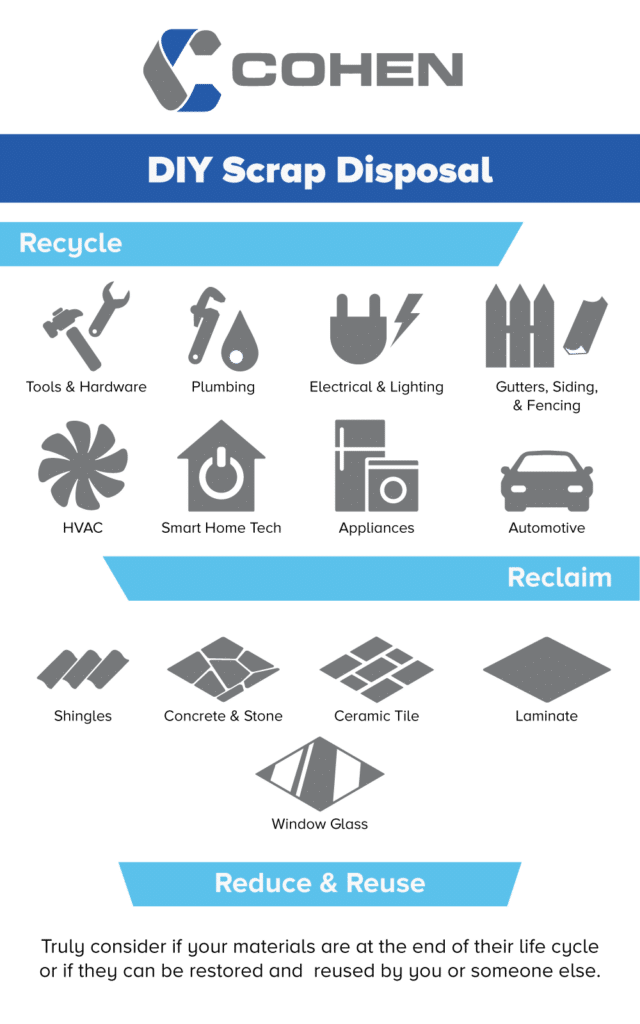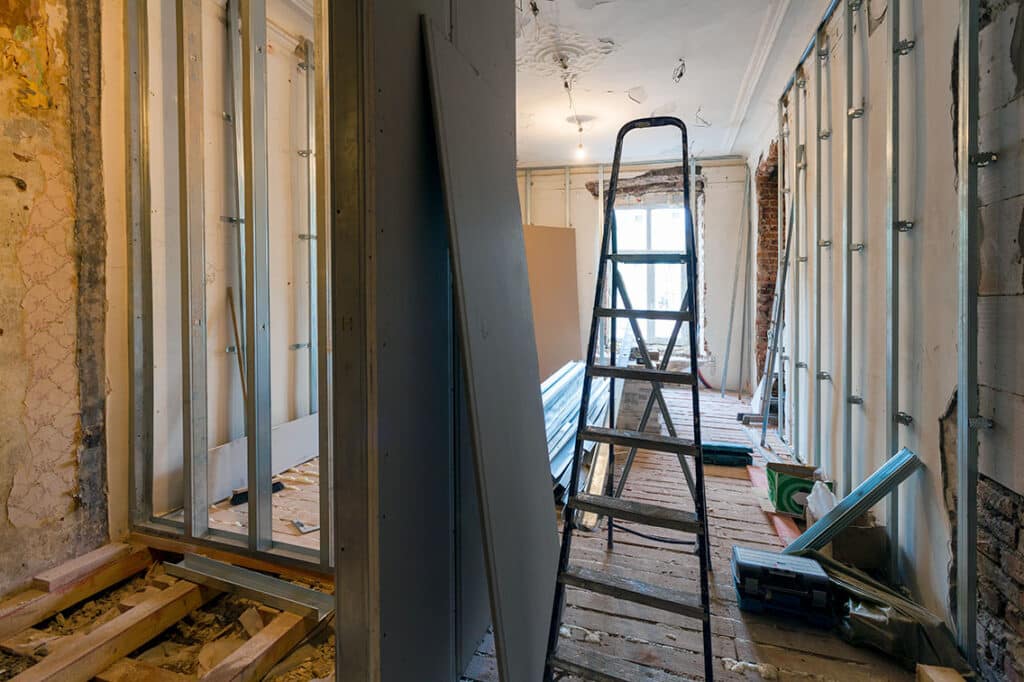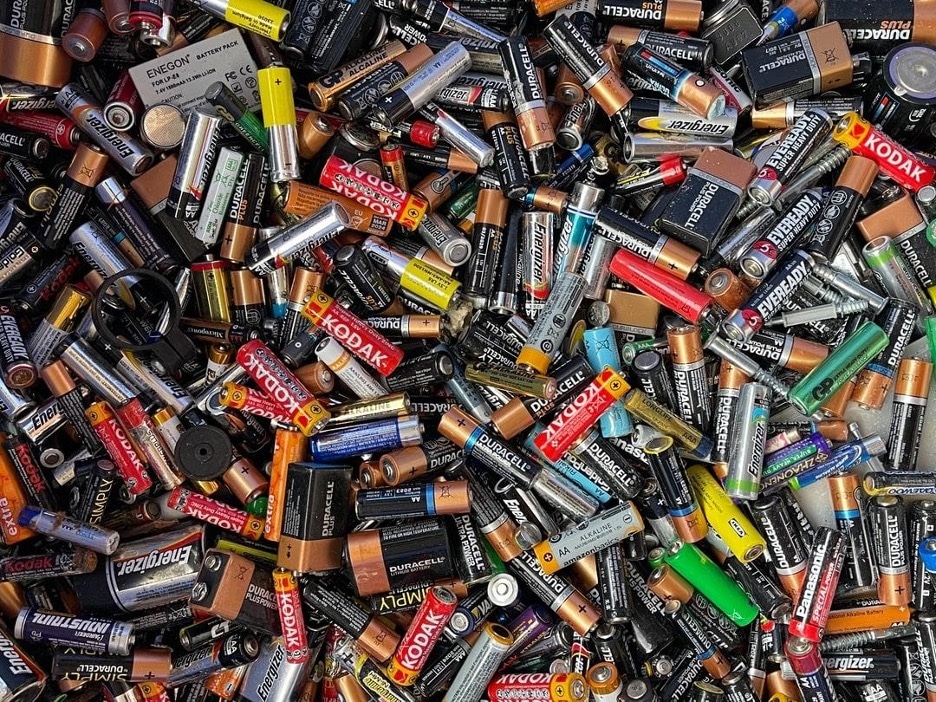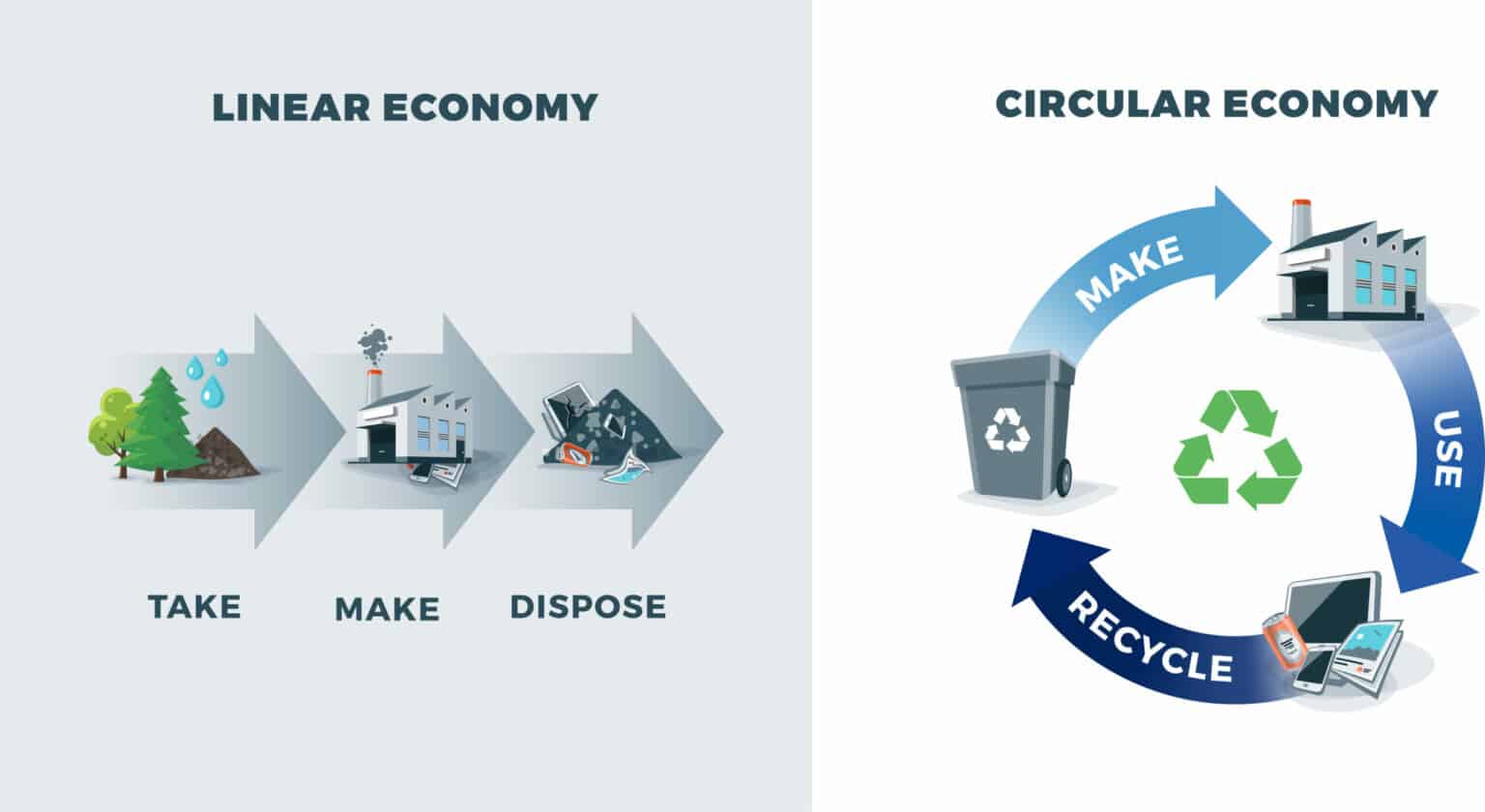When you’re a homeowner, the work is never done. Some are happy to leave it to the professionals, while others see home improvement as an opportunity to roll up their sleeves, learn and apply some skills, and save some money. Doing-it-yourself can even become a hobby: furniture building, woodworking, fabrication, construction, lawn and garden care, automotive work, all the way to building your kids a dream tree house.
Whether you take on projects by necessity or by choice, you’ll want to have a plan for handling the home improvement DIY scrap and waste you generate along the way. There is a sustainable, responsible way of getting rid of most of your excess materials from remodeling and renovation. The time to plan for that is at the beginning, not right before the final cleanup.

FIRST, REDUCE AND REUSE
Before you dispose of anything, consider whether it’s truly at the end of its life, or if it could be restored and reused. Maybe it’s something you can repair and get more use out of, or use as material for another project. Maybe you can donate it. There are many secondhand stores, such as Habitat for Humanity Restores, that will take salvaged building materials, plumbing and lighting fixtures, cabinets, and furniture.
You can also reduce the amount of waste you generate by seeking out salvaged or secondhand material yourself. Windows, siding, banisters, mirrors, decking and doors can often be found in places that sell used goods. The idea is to have as little material and supplies left over at the end of the project as possible, so consider renting tools, and getting your material cut to order.
Of course, sometimes something truly is at the end of its useful life. Or, you might find yourself with an awkward amount or size of excess material that you’re unlikely to find a use or home for. Some amount of waste is difficult to avoid. Where possible, try to dispose of it responsibly.
RECYCLABLE
Tools and Hardware – Any loose odds and ends, or damaged supplies (think: bent nails, stripped screws), can be recycled as scrap metal. That goes for the tools themselves, including power tools and those that use batteries. There may be a charge for recycling certain rechargeable batteries.
Plumbing – Copper and brass are common among plumbing systems and fixtures. To get more value for your copper, cut off any sections that show solder and separate them from clean copper. Appliances such as water heaters and sump pumps can also be recycled. Call your local waste management authority to inquire about opportunities to dispose of PVC.
Electrical and Lighting – There’s a lot of recyclable metal to be found in electrical components and fixtures. Stripping cables and wires yourself can affect their value at the scale, but is not a requirement for recycling. Light bulbs must be disposed of separately from scrap metal and are accepted at many major retailers.
Gutters, Siding, and Fencing – These are commonly made from aluminum and steel, sometimes copper, and can be recycled as scrap.
Heating, Ventilation & Air Conditioning (HVAC) – Ductwork, radiators, A/C units, and furnaces are all recyclable. Any units containing coolant may incur a fee for proper drainage and capture of hazardous gases.
Smart Home Tech – Security systems, thermostats, speakers, anything that might connect wirelessly or over Bluetooth
Appliances – Refrigerators and freezers, washers and dryers, dishwashers, water heaters, water softeners, dehumidifiers, stoves and ovens, countertop appliances. Appliances that use coolant may incur a fee for proper drainage and capture of hazardous gases.
Automotive – Car parts and cars themselves are recyclable. Cars should be drained of fluids and a valid title is required. Catalytic converters are among the more valuable car parts.
Lawn and Garden – Tools (manual and power), garden stakes, metal patio furniture, mailboxes, flagpoles, and anything metal you might dig up out of your shed or garage. We’ve even recycled farm equipment! Tools that use oil and/or gasoline should be drained prior to recyclable.
POSSIBLY RECLAIMABLE Home Improvement DIY Scrap
Building materials such as shingles, concrete and stone, ceramic tile, laminate, and window glass typically don’t enter the same recycling stream as your usual bottles and cans. What you’re able to do with your surplus will largely depend on the volume and condition of what you have left and whether there’s demand for it. If you can’t sell or donate it somewhere, contact your local waste management authority for their guidance on disposing of it.
PALLET WOOD
If you ordered material in bulk, you might have some leftover wood pallets – which can be a real space hog, not to mention a home for bugs. Believe it or not, there are recycling and salvage services for wood pallets, and some manufacturers offer take-back programs.
Some people will use pallet wood as material for other projects, or as firewood. There are some risks associated with upcycling and burning pallet wood, depending on how it was treated. Use caution and educate yourself on the different kinds of wood treatments before putting your pallets to a new use.
OTHER MATERIALS: PAINT, RUBBER, OIL AND CHEMICALS, TEXTILES
There are some materials you may come across in your home improvement, renovation or remodeling project that are more difficult to get rid of than others. Paint, chemicals, and pressurized containers require special handling, and heavy-duty plastics and rubber aren’t typically eligible for recycling. Learn about where you can take hard-to-dispose-of materials in this article.
For anything not covered here, or special circumstances, your local waste management or environmental services authorities are often the best place to start.




